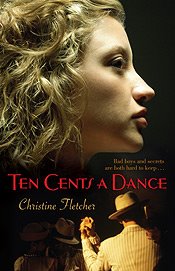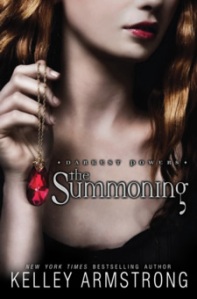
Back when I was in high school, my mom worked with F. Scott Fitzgerald’s niece. When Mrs. Reneau discovered how much I loved her uncle’s books – I carried his collection of short stories in my backpack – she let me read a book she had written about her father, Vice Admiral Clifton Sprague.
What I remember most about her book – other than Mrs. Reneau’s memory of Scotty Fitzgerald and her French nanny coming to the dinner table in evening wear – was the way she referred to her father as “daddy.” It was a little strange because this was a man who was one of the first to open fire on Japanese planes on the morning of December 7, 1941.
(Ironically, the same week Wonder Woman first appeared as a comic strip!)
Anyway, writing about your parents can be tricky business. When I met Gloria DeLa Torre-Wycoff at the California Comadrazo earlier this year and saw the cover of her book, I bought it without hesitation. In Scarred by Scandal, Redeemed by Love, Gloria tells the story of her mother, Maria DeLa Torre, a young woman who grew up in the priveleged household of her uncle and aunt in Mexico City. But her parents who had fled for the U.S. during the Revolution called her back to live with them and Maria entered a different world in the barrio of East Los Angeles circa the 1920’s. At the age of 19, Maria was pregnant by her brother-in-law and then banished from her family.
Even though her love for her mother is apparent, Gloria steps back to show Maria’s strength and weaknesses; her mistakes and her triumphs. It’s an extraordinary book about a single mother who in spite of a life of poverty and humiliation, leaves an enduring legacy of love. Please meet Gloria DeLa Torre-Wycoff.
Chica Lit: When did you start writing this book and why?
Gloria: I actually began writing this memoir in 1997. Although I didn’t consciously realize it at the time, the seed for this book was planted on the day my mother died in October 1993. I had asked my daughters to call family and friends to let them know of her passing, and that we would mail details about the funeral. During the phone calls, one of my daughters came to me upset and frustrated because a family member on my father’s side had reacted sarcastically to the news about my mother and referred to her own mother’s death 60 years earlier. Because of the vulnerable state of our emotions at that moment, my daughter and I agreed to just “let it go” and talk about it another time.
I began writing random notes about my mother which took the form of a poem of sorts about the tender, lonely nurturing of a single mother – lovingly breastfeeding her babes, picturing my mother, alone with her infant. (These writings became the book’s Dedication). I also developed a list of all the places we had lived, beginning in 1927 when Ruben was born, until 1950, when I married. It took quite a while to tie this information together because we had lived in so many places. I wanted this to be as accurate as possible, so I mailed a copy to my brother, Ruben in New York City. He appreciated it, made a few changes and interesting comments. This list served as a guide for me, an outline for writing the book.
In 1997 when my husband and I moved to Orange County, I was planning to retire and decided it was time to write something for my children about my mother – their Nana –and for my grandchildren and great–grandchildren. My intention was to write something to serve as a loving legacy for my family. I would write it, print it out, take it to Kinko’s and have it set in a nice binding. And that was it. But the more I thought about it, and the more I wrote, the more my husband encouraged me to develop it into a book. This is when I realized that it was time to write a book in honor of my mother.
Chica Lit: Would she have approved?
Gloria: I believe she would have approved, or rather, she would have agreed, especially if she could have seen the finished creation. Mama and I had implicit trust in one another. Also, knowing it was written as a loving legacy for her grand-and great-grandchildren, yes, I believe she would have approved. She would have loved the photographs!
Chica Lit: I’m curious … what happened to your father after your marriage? You never mentioned him again after that chapter.
Gloria: The last time I mentioned my father was on page 237 in a discussion with my nephew about my mother being perceived as passive. She was not passive, rather, she was unobtrusive. Back to your question: the last two chapters were devoted primarily to the memory of my mother. Not mentioning Ezequiel was not intentional; he simply no longer played a role in my mother’s life once Ruben and I had married. I stayed in touch with him until he died in 1976. He and his 2nd wife were fond of my children, liked my first husband – no negative vibes…
Chica Lit: How did you mother feel about your father after all was said and done. Did she resent him or did she still love him?
Gloria: She always loved him. I don’t recall being aware of overt resentment from my mother toward my father. Her attitude, her actions told me she accepted her responsibility for her part in their relationship. Although there were times when I did sense her great disappointment, sadness and sorrow where my father was concerned, but she rarely talked about it. She never blamed him for her situation. I’ve conjectured that she may have acted out her resentment when Ezequiel remarried because that was when she began seeing other men.
When he died in 1976, I took her to his funeral in East Los Angeles; she was greeted by some and ignored by others. It’s a vague memory for me. The next day, after I had gone to his burial, I went to see my mother and she had taken out a formal handsome photograph of him and placed it on a shelf in her front room. In later years it “disappeared” otherwise it would have been in my book. To repeat, yes, I believe she still loved him.
Chica Lit: One of the most poignant moments of your book is your mother’s regret over leaving Mexico. How did she not let her regrets get the best of her?
Gloria: Leaving Mexico was a major turning point for her. She was a young 18 and had lived a relatively affluent, albeit lonely lifestyle in Mexico City as a result of living with her aunt and uncle. According to my cousin, when she first came to the U.S., my mother was not happy and hated living in East L.A. Unfortunately, she did not stay in touch with her aunt and uncle ~ probably because of her relationship with Ezequiel.
My mother often reminisced about her early life in Mexico City with some regrets, but she didn’t allow them to consume her or to dwell on them. My mother had an innate ability to adapt to life’s changes even under the harshest of circumstances. One of my reader’s wrote in her Reader’s Review: “…such a profound story of a woman who lived life on life’s terms.” And that’s what she intuitively learned to do at an early age; she learned to accept what life dealt her. She was not without regrets, yet didn’t blame others for her situation. She had moments of depression, sadness, longing – probably for my father to re-enter her life…
Chica Lit: I’ll never forget when you told me that your mother’s story is one of the oldest stories in the book. Why do you think her tale is so prevalent among our mothers and grandmothers’ generations?
Gloria: Two sources have made me aware that my mother’s story was not unique. My first source was the local library when I became curious about the term “illegitimate births.” I could only find census data beginning in 1940, but it was enough to indicate that “births to unmarried mothers” have grown exponentially since then. In 1940 there were 90,000 “Illegitimate Live Births to Unmarried Mothers” and in 2006 there were 1.6 million “Births to Unmarried Mothers.”
The other source has continued to be more personal and anecdotal; it evolves after I do readings and presentations of my book. This is where I hear very moving, touching stories, often from young Latinas/Chicanas who buy my book and tell me tearfully, proudly about their unwed mother’s or grandmother’s who struggled to raise their children; or they tell me about themselves as single, unwed mothers struggling to get through college to make a life for themselves and their children. I’ve also been approached by older women, mostly Mexicanas/Latinas, who have stories about their husbands, grandfathers. In fact, my very special friend/colleague of 20 years, told me (after reading my book) about her father having a relationship with her mother’s (his wife’s) younger sister who had his child. Sound familiar?
Chica Lit: What do you hope the younger generations of Latinas will take away from reading your book?
Gloria: My hope is that they will recognize and take away the experience of the great power of mother love which endures beyond any other love. It is my hope that this book carries a motivational message for Latinas of all ages – unwed mothers in particular – who struggle with family and with bettering their lives. I hope they take away the message of the value of education; the richness of reading; the gift of encouraging young children to read at an early age. As she struggled to learn English, my mother discovered the public library and literally opened the doors to the wonderful world of books for us – her young children. No matter how poor we were, we always had access to library books – and they were free!
My hope for the younger generations of Latinas is that that they recognize that there is no shame in giving birth as an unmarried mother. The shame is when the attitude of others – family in particular – see this chosen birth as shameful act. The shame is also when a child born out of wedlock is treated as “less than” by family members, by the school system, by society.
My greatest hope is that the younger generation of Latinas will ultimately be inspired to make wise choices for herself and for her future.
Chica Lit: To order a copy of this amazing memoir, please visit Gloria’s website.












